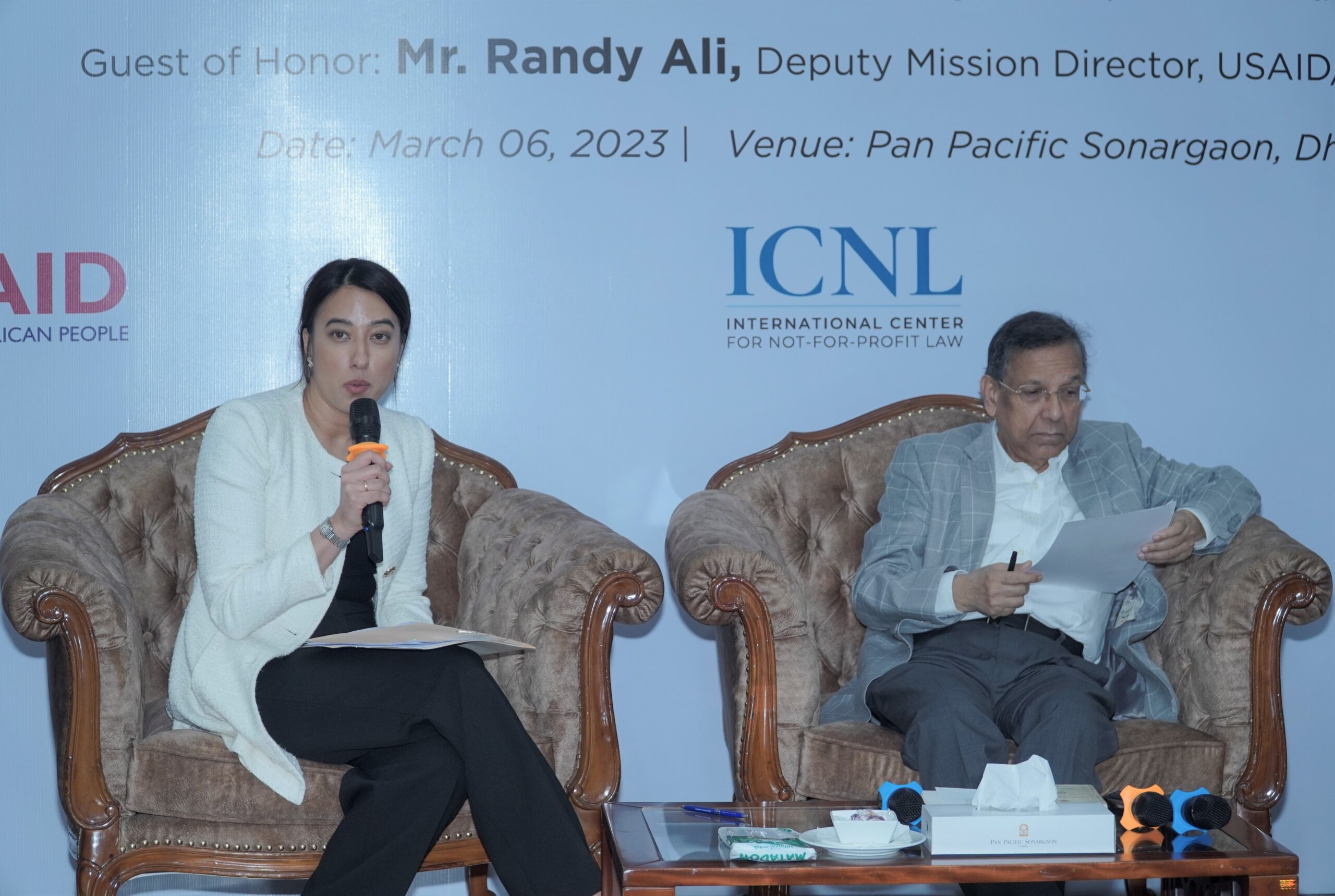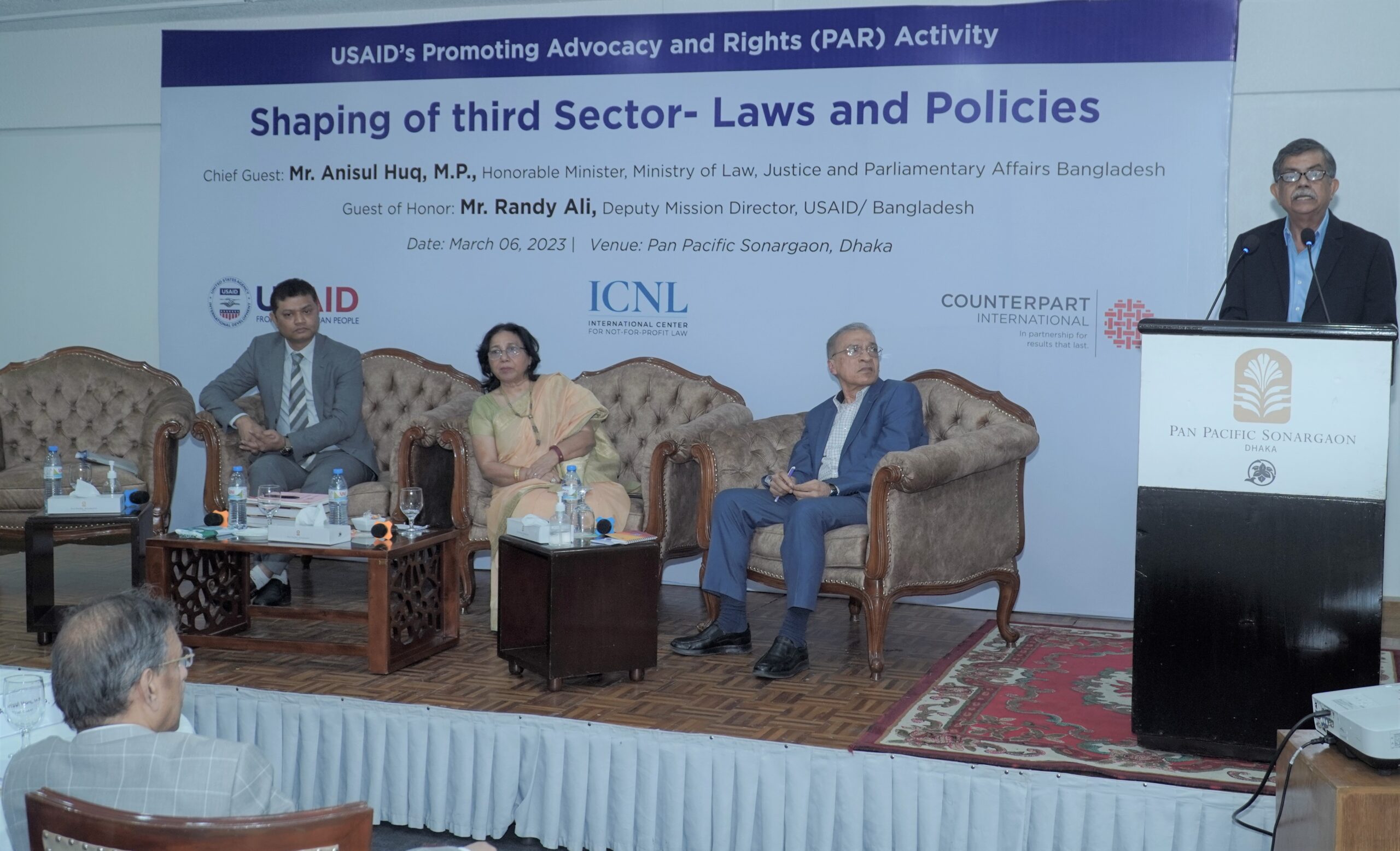Bangladesh civil society organizations gathered to elevate the importance of the civil society sector and advocate for greater protections for civic space on March 6, 2023. The meeting concluded with the establishment of a viable model for civil society to work in partnership with government stakeholders.
Counterpart’s Promoting Advocacy and Rights Activity, funded by USAID, partnered with the International Center for Not-for-profit Law (ICNL) to conduct the high-level conference in Dhaka, Bangladesh.
During the event, led by ICNL, recommendations were presented from a keynote paper, which was produced in consultation with representatives of civil society, legal experts, and lawyers who had reviewed significant laws (e.g., the Foreign Donations (Voluntary Activities) Regulation Act of 2016, and the Digital Security Act of 2018) affecting civil society in Bangladesh.
Recognizing that a robust civil society is necessary for maintaining a more peaceful and stable Bangladesh, the paper outlined recommendations for Bangladesh’s Law Minister Anisul Huq consideration to support an enabling environment for civic space where human rights are respected, and pluralistic traditions can be maintained.

USAID’s Acting Office Director of Democracy, Human Rights and Governance, Medhawi Giri, supported the justifications on recommendations.
Sharmin Khan, ICNL’s legal consultant, provided an overview of the paper, followed by a panel discussion by selected civil society representatives, who emphasized the importance of the policy recommendations. Discussants featured Shaheen Anam, executive director of Manusher Jonno Foundation, Dr. C.R. Abrar, professor and researcher, Barrister Jyotirmoy Barua, of the Supreme Court in Dhaka, and Dr. Iftekharuzzaman, executive director of Transparency International Bangladesh.
Participants noted that the keynote paper represented an effective model for translating constructive feedback from civil society into evidence-based reforms. Medhawi Giri, USAID Acting Office Director of Democracy, Human Rights and Governance, supported the panelists’ recommendations and hoped for effective legislative action soon.
Huq publicly acknowledged the importance of civil society as the third sector in Bangladesh and secured high-level commitments to address civic actors’ concerns. Participants expressed optimism that broad media coverage of the event increased accountability of government officials to support civil society moving forward.
Read more about how our Promoting Advocacy and Rights Activity is collaborating with Bangladesh civil society organizations to build environnmental resilience.





